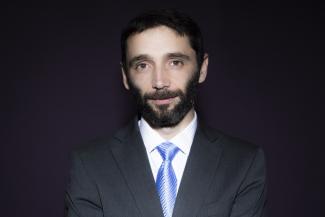Between clear perils and black swans: the strategic challenges after COVID-19

Practical information
A "Les Jeudis de l'Ifri" videoconférence around Corentin BRUSTLEIN, Director of Ifri's Security Studies Center.

The COVID-19 pandemic highlights both the appetites for power and the limits of cooperation and governance mechanisms. While its short-term effects on the armed forces and the defense industrial and technological base were identified early enough, the longer-term security challenges are manifold. Some are already visible, like the multiplying strategic signals and the opportunity effects exploited by all types of actors in the vicinity of Europe as everywhere else, which recall the omnipresence of the balance of power. While many other effects remain more uncertain, gloomy prospects are emerging, which may combine a sudden acceleration of strategic competition, catastrophic humanitarian situations and budget cuts for the French armies and their closest partners. The challenge for the French defense strategy is therefore more than ever to give itself back some leeway, by re-articulating both its priorities and its discourse.
This debate is for corporate members only. It will be conducted in French.
Speakers
Related Subjects
Other events

EV Supply Chains for Japan and Europe: Strengthening Economic Security
Economic security aims to ensure the resilience of supply chains for key industries: the case of electric vehicle production in Japan and Europe will be discussed.

From Ambition to Action: Exploring Technological Partnerships with India
The 16th EU-India Summit, held on January 27th in New Delhi with European leaders António Costa, Ursula von der Leyen, and Prime Minister Narendra Modi, marks a significant milestone in deepening EU-India relations. At the same time, official bilateral visits from EU member states are on the rise, including that of the French President, who visited India in February to participate in the Artificial Intelligence Summit. As India asserts its technological ambitions and seeks to reduce its dependence on China, Europe is stepping up its efforts to diversify its strategic partnerships.








